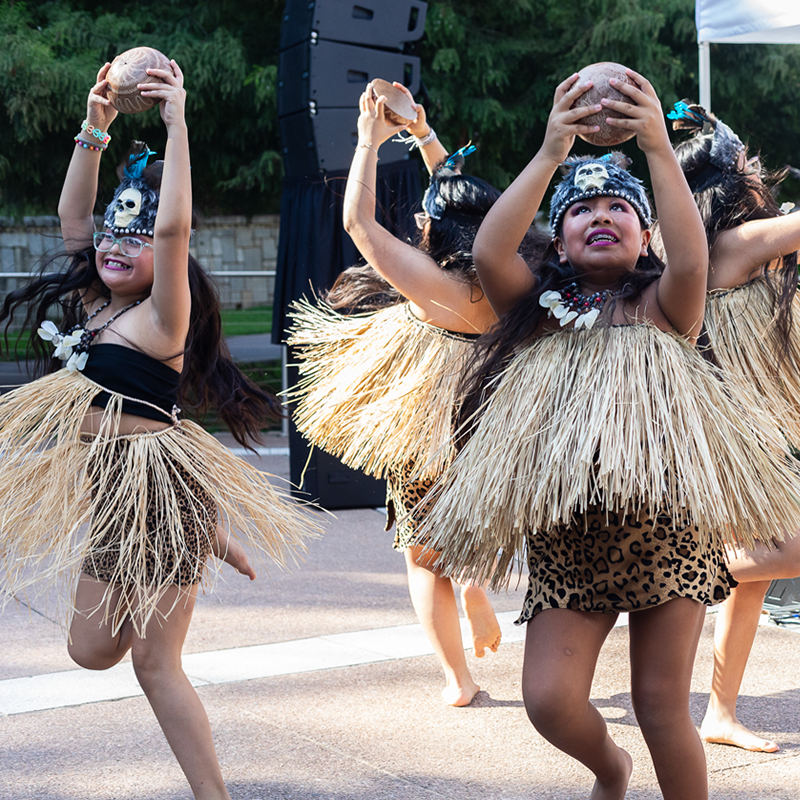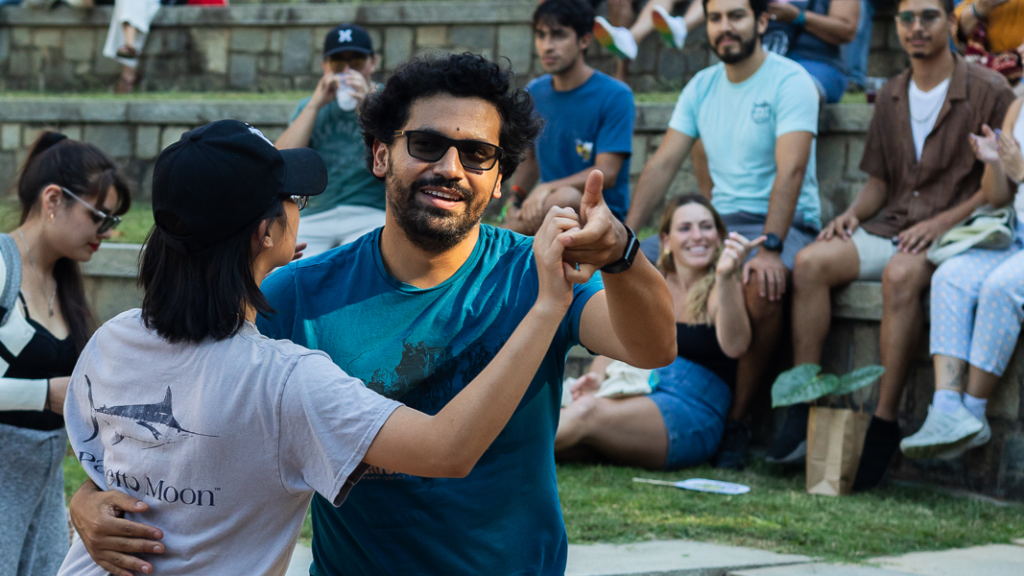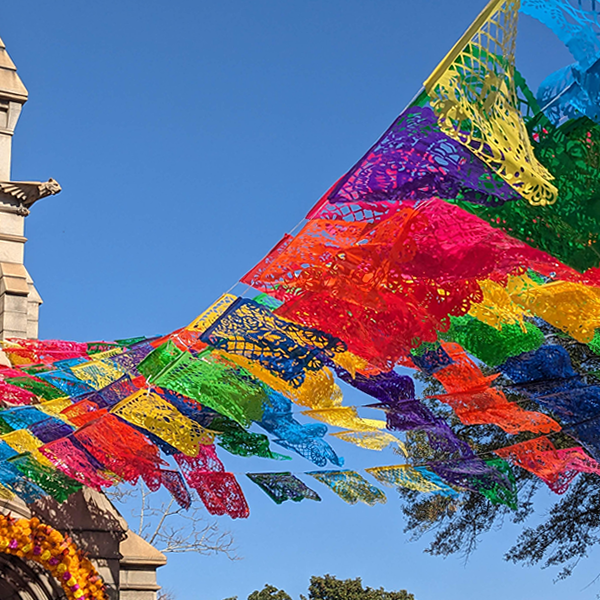With a remarkable growth of 37.4% between 2010 and 2022, the Hispanic and Latino population has surged from approximately 800,000 to over a million1, underscoring our integral role in the state’s cultural and economic landscape. Yet, despite this significant presence, many within the community continue to face unique challenges that often go unrecognized.
Historically, the voices of Latinos in Georgia have been muted by systemic barriers and a lack of comprehensive data that reflect our true needs and contributions. Misunderstandings and misrepresentations surrounding identity and documentation have further compounded these challenges. As one of the fastest-growing communities in the state, Latinos demand greater recognition and support, not just as a statistic, but as a fundamental part of Georgia’s identity.
Who we are – A Transformative Narrative
We are people of Latin American descent (with roots in Latin America, defined as Mexico, Central America, The Caribbean, and South America). We have a rich and complex history, set of beliefs, cultures and experiences.
Many of us share indigenous roots and are the product of colonization.
Many of us have both the heritage of being the slave and the enslaver. The oppressed and the oppressor. Most of us find it hard to separate these realities from our identities.
We carry the legacy of our ancestors and the impact in our bodies and souls of a multitude of generations that have struggled and succeeded in our self-determination.
We embody the responsibility of carrying our culture forward, affirm our identities, narratives and imagine the possibilities of how a future could look like.
We hold and affirm our collective power in our diversity. We recognize that one voice is not all voices.
One experience is not all experiences. One language and one story does not represent us all and that regardless of our origin we are, have been and will continue to be an integral part of the U.S.
We are not defined by documentation status, educational level, challenges and barriers.
We can however, be defined by what we hold dear:
- Safety and Wellbeing
- Joy and Optimism
- Traditional Knowledge and Culture
- Nature and Land
Introduction
According to the US Census Bureau’s 2022 American Community Survey (ACS)1, there were an estimated 1,078,457 Latino or Hispanic residents in Georgia, making up approximately 11% of the state’s total population. Georgia’s Latino population has surged by 32.7% since 2010—a growth rate that outpaces the national average of 25.9%.
In 20 Georgia counties, the growth of the Latino community accounted for more than 50% of total county population growth from 2010 to 20221. Urban areas are at the forefront, with 83.4% of the increase occurring in counties with more than 50,000 residents.
Even though 91% of Latino households report having an income, showing strong workforce participation and entrepreneurship, nearly one in five Latinos still lives in poverty1. This rate is similar to that of the Black and African American population and is much higher than the roughly 9% poverty rate among non-Hispanic white residents.
Despite many challenges, Latinos are making a significant and growing contribution to the state’s economy. In 2021, the Latino GDP in Georgia reached $52.2 billion, comparable to the entire economic output of Wyoming or Vermont2.
On the other hand, while Latinos see education as a vital pathway out of poverty, they face significant barriers to achieving their goals. These challenges include bans on attending certain public higher education institutions, lack of access to in-state tuition for long-term residents, and being forced to pay up to three times the fees of their peers3. Additionally, personal and family responsibilities, along with minimal support from counselors to navigate the educational system, further discourage their progress.
To address the urgent demand for an educated, globally-minded workforce capable of responding to ongoing economic growth, Georgia must engage with, invest in, and recognize the tremendous opportunity presented by its predominantly multilingual and multicultural Latino community. This community, with an average age of just 261, represents the youngest population in the state and is ready and eager to contribute, as it has for decades.
To strengthen the state, our growing community demands a policy and programmatic environment that ensures we feel safe in pursuing our aspirations for economic and educational attainment, as well as improved health and well-being outcomes.
This report aims to enhance understanding of the Latino community's diversity, the barriers we face, and the opportunities for greater visibility and inclusion in Georgia’s progress. We envision a state where opportunities are shared, where all communities thrive, and where positive change occurs not in steps, but in leaps.
On Identity Terms
For the purpose of this work, we focus specifically on individuals of Latin American descent, including those who don’t speak Spanish or speak indigenous languages. This report mainly uses the terms “Hispanic and/or Latino,” as defined and reported by our data sources (primarily the US Census Bureau and other government agencies). Although these terms have different meanings, they are generally used interchangeably by agencies for data tracking and reporting purposes.
Additionally, personal views on identity don't always align with official government definitions, which can limit options of self-identification for some communities. For example, although Brazilians are not officially categorized as a 'Hispanic' ethnic group, many self-identify as Hispanic or Latino.

We recognize the evolving nature of language and the various terms that represent our diverse identities, such as:
- Hispanic: Refers to people with ancestral roots in Spanish-speaking countries from Spain and Latin America.
- Latino/a: Refers to people of Latin American ancestry, including North, Central, South America and the Caribbean, regardless of the language they speak.
- Latine, Latinx: Terms that refer to people of Latin American descent and are inclusive of nonbinary and gender-nonconforming groups, regardless of the language they speak.
This report uses these terms interchangeably to refer to the broader community, primarily using 'Latinos' in the narrative and 'Hispanic and/or Latino' when citing official data sources that use these terms.

Report Structure
This report is a personal letter that illustrates the complexity of the Latino experience in Georgia in a concise and interconnected way. The stories and data insights presented in this report are interwoven, collectively forming the intricate and diverse fabric of our community's identity.
The State of the Latino Community in Georgia Report is organized into seven chapters, each focused on a specific theme: identity, economic development and employment, education, housing and safety nets, healthcare and wellbeing, arts and culture, and political power. While these chapters are distinct, the personal narratives of community members interviewed serve as a unifying thread. Through their experiences, these stories reveal how different systems intersect and impact one another, particularly in relation to our identity.
The report also draws on insights from experts and community leaders, who were interviewed and participated in focus groups. Their contributions help to illuminate the complex challenges we face in Georgia, as well as the untapped potential of our community in the state.
A Note About the Data
Data isn’t perfect.
Data on the Latino community is often limited due to undercounting, vague labels, self-reporting challenges, and fewer available sources. This makes it difficult to capture the full scope of our experiences.
One major reason for the limited data on Hispanics and Latinos is the complex, varied, and dynamic documentation status of many individuals. It is estimated that almost a third of Georgia's Latino population is undocumented, which excludes them from many data sets because of eligibility constraints or fear of exposure.

For example, undocumented individuals can’t work legally because they lack work authorization. As a result, the estimated 87% of working-age undocumented Hispanics and Latinos in Georgia5 are absent from employer-sourced data, such as employment tax records or Bureau of Labor Statistics reports. This data gap affects various areas, including health, housing, and education. Despite these barriers, many of these individuals are working and contributing to the economy, their communities, and their families.
Additionally, the lack of data disaggregation limits our ability to make accurate conclusions. Many datasets collect information about race but often neglect ethnicity. When ethnicity is included, it often follows a race selection, leaving many multi-racial individuals or those who don’t fit into predominant categories—white, Black, Asian American, or American Indian—underrepresented.
As you read this report, it's important to remember the diverse experiences and challenges that individuals from the LGBTQI+ and Indigenous communities face when accessing services and opportunities. The limited data presents a barrier to accurately depict the experiences of these communities. However, the challenges they encounter—due to overlapping discrimination based on sexual orientation, gender identity, language and ethnicity—go beyond factors like socioeconomic status, place of origin, documentation status, or language spoken.
Considering the realities outlined in this report, we must acknowledge that we are an undercounted community. Undercounts lead to underrepresentation and ultimately misrepresentation. The real challenges we encounter—livable income, lack of health insurance, and access to homeownership—are likely much larger and more complex than the numbers indicate







